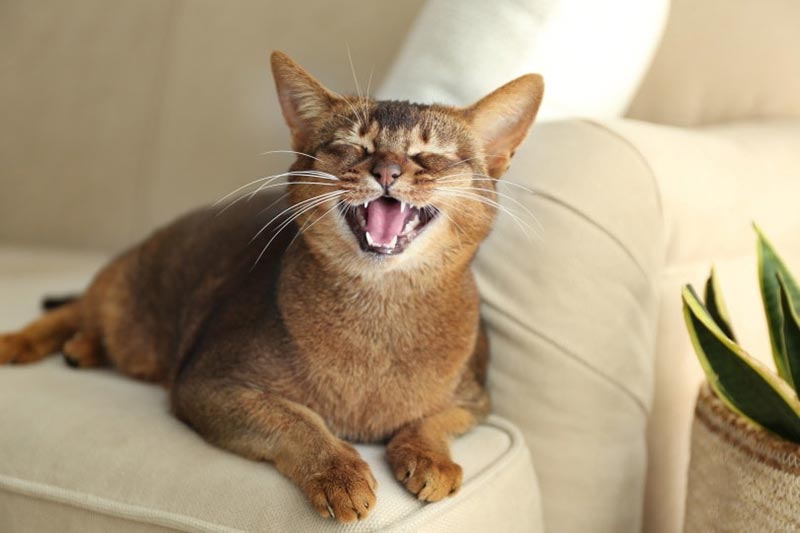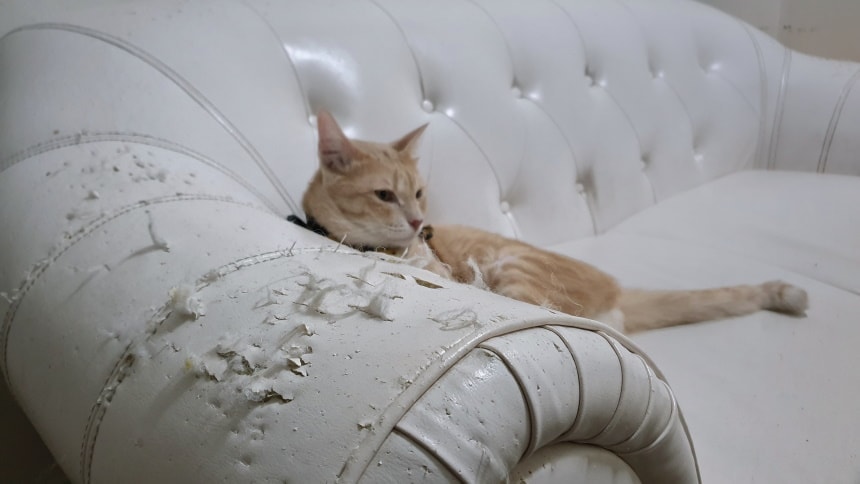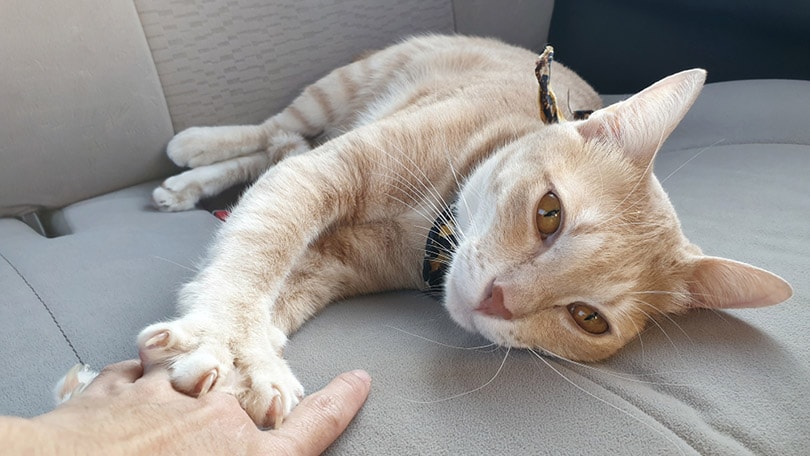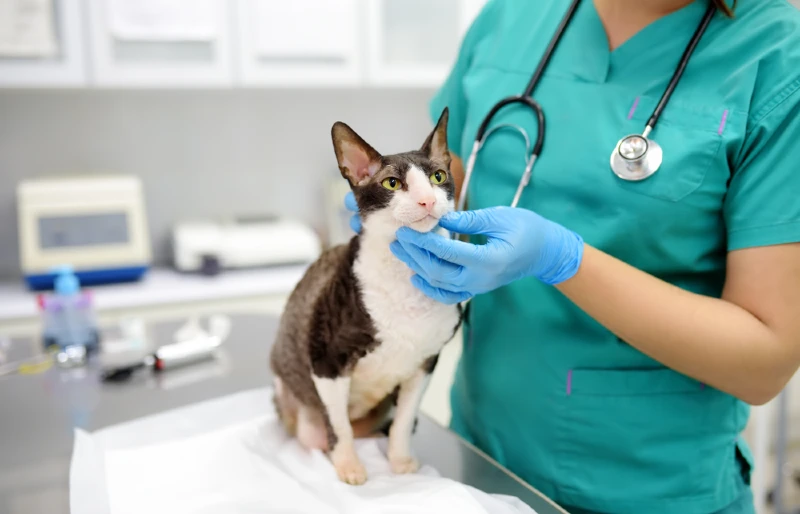
Cats add an atmosphere of cheer and playfulness to your house and can lower stress levels. However, owning one or a few cats has its caveats, especially if the cats are overly affectionate and can’t get enough attention.
Attention-seeking cats can go from adorable to a nuisance in a finger’s snap.
If you’ve had enough of your cat waking you up at ungodly hours or meowing through the night, this article is for you. Read on to learn how to deal with this behavior.
How Do Cats Seek Attention From Their Owners?
Cats seek attention from their owners in several ways. Some of the most common ones include the following:
1. Excessive Vocalization
The most common way for cats to seek attention is to meow excessively. This could indicate hunger or that the cat wants to play.

2. Circling Your Legs
Cats often circle their owners’ legs and block their path when seeking attention. Sometimes this can be dangerous because there’s always the risk of trampling or tripping over them. Be extra careful with your movement if your cat displays this behavior.
3. Pawing on You
Cats who want their owners’ attention may also paw or scratch their owners or objects near them. Pawing is fine, but furniture scratching should always be stopped and redirected. Discourage scratching behavior the moment you notice it before it gets out of hand.

4. Jumping On High Surfaces Near You
Cats will jump on surfaces like countertops and tables near you to get your attention. They especially target surfaces typically off-limits just to work you up. The way to stop this behavior is by ignoring it.
Cats also show disruptive behavior, like knocking down objects or playing with cables when trying to get your attention. It’s important to address this behavior immediately. You never know when it may knock down something important or expensive.
5. Kneading
Kneading is only adorable when you’re not resting or focusing on something important. Make sure your cat is not asking for something important, like if they can’t access their litter box or if their water bowl is empty.

The 4 Reasons for Cats Seeking Attention
Understanding the reasons for your cat’s attention-seeking behavior is the first step in dealing with it. The following are some common reasons why your feline friend won’t let you be.
1. The Cat Is Hungry
Your cat may be meowing excessively and pawing on your feet simply because they’re hungry. Maybe the last time you fed your cat was hours ago, and the poor kitty just wants to fill their rumbling tummy.
However, in some cases, the feline is likely addicted to their treats. Ensure you don’t feed them too many treats just because they want them! You can always feed them small portions of their food as a “treat” during the day.
2. They Want to Talk
Some cats are inherently chatty and enjoy back-and-forth conversations with humans even though neither understands the other.
This is especially true for Siamese cats and other oriental breeds that can’t seem to sit quietly. While their excessive vocalization is completely natural, it can sometimes get on your nerves.

3. Stress and Anxiety
Cats have yet to reach the emotional complexity of humans, but they can still get stressed and anxious. If you notice abrupt attention-seeking behavior, your cat is probably stressed and anxious.
This mostly happens when you introduce something new to the house or your routine. Maybe you decided to adopt a new cat, have a new roommate, or your newborn arrived home.
Cats can also get stressed when you buy a new device that makes strange noises or when you switch up their usual routine. Cats will seek your attention when stressed for reassurance and protection.
Removing the stressors from the house will likely stop the attention-seeking behavior. However, if that isn’t an option, you can try minimizing the cat’s interaction with their stressors until they get used to them. Remember to use positive reinforcement to praise the desired behavior.
4. Natural Behavior
Attention-seeking in cats doesn’t have to be excessive meowing, pawing, or running circles around your leg. Some cats seek attention in more destructive ways, like scratching on furniture.
It’s easy to get worked up when this happens, but remember that this is only natural, and they can’t help themselves. Cat’s scratch surfaces to communicate. Sometimes they do so to spread their scent and mark their territory, which explains why your new sofa is their preferred scratching pole.

The 5 Ways to Tone-Down Your Cat’s Attention-Seeking Behavior
Most people want a cuddly and affectionate cat, but they are not sure what to do if they can’t leave you in peace when you need to focus or relax. Here are a couple of ways to mitigate attention-seeking behavior in cats.
1. Create a Regular Feeding Schedule
If your cat is seeking attention because they’re hungry, you might have been underfeeding them. Having a regular feeding schedule ensures your cat is well-fed throughout. This reduces the chances of them waking you up too early or disrupting your focus when studying or working. Also, slow down the treats to avoid obesity. If your cat’s appetite has suddenly changed and they seem hungry despite being fed, consult your veterinarian. Diseases like hyperthyroidism and diabetes are sometimes behind a ravenous appetite.

2. Ensure Enough Physical and Mental Stimulation
Cats are extremely curious creatures, always out and about and getting into all sorts of trouble. Without ample physical and mental stimulation, it’s only natural for them to seek attention.
Ensure you give your cat enough toys, interactive feeders, and cat tree scratching posts to stimulate them mentally. Also, create multiple perch sites to create an almost natural environment conducive to physical activity.
You should also spend enough time with your cats, playing or napping. If you can’t, consider getting another feline to keep your furry friend company when you’re too busy or away from home. Doing so will go a long way toward curbing attention-craving behavior.
3. Ignore Attention-Seeking Behavior
Entertaining your cat’s attention-seeking behavior will only encourage it. Ignore your cat whenever they starts seeking your attention by jumping on countertops, meowing excessively, pawing on your legs, and so on.

4. Reward Proper Behavior
Your cat will start to behave appropriately if you stand firm on not entertaining attention-seeking tendencies. Capitalize on this behavioral change to reward good behavior and encourage more of it.
Reward them with their favorite treats when you notice good behavior. Doing so is a form of positive encouragement that will encourage and instill a toned-down attitude.
5. Visit the Veterinarian
Sometimes attention-seeking behavior may indicate something more serious. Cats will also seek attention when they’re injured or feeling unwell. Most cats will hide and retreat to a hidden spot when they are not feeling well, but some cats may become more clingy and needy. You know your cat better than anyone. If your cat is attention-seeking out the blue, contact your vet for a health check-up as soon as possible

Final Thoughts
Cats are loving and affectionate creatures, so don’t get too annoyed when they won’t leave you in peace.
Some cats experience phases where they become too clingy to their owners, but these phases are short-lived, and the cat will likely assume normal behavior in a while. Talk to your vet if you can’t stop your cat’s attention-seeking behavior.
- Related Read: How to Get a Cat’s Attention: 12 Methods That Work
Featured Image Credit: Jaromir Chalabala, Shutterstock








